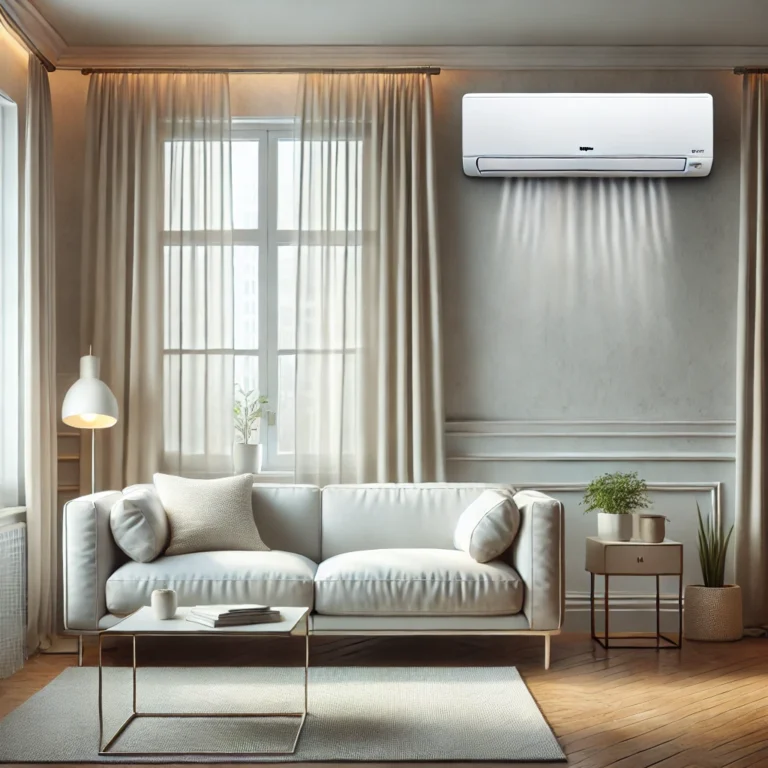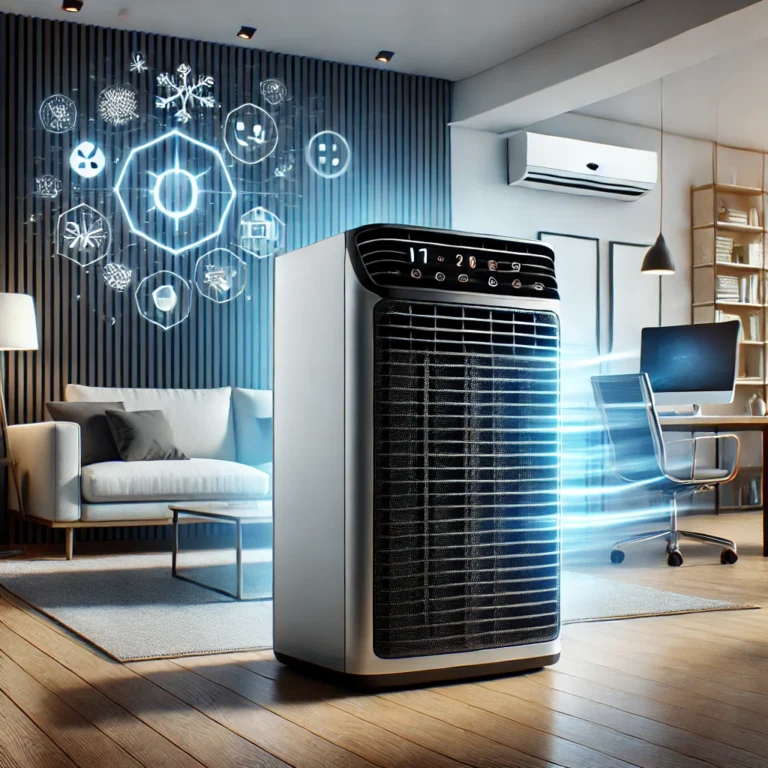Tax credit for air Conditioner 2024: Unlocking Hidden Savings
Tax credit for air Conditioner 2024:
Certain air conditioners that meet Energy Star requirements can qualify for a tax credit. These tax credits are designed to encourage energy-efficient home cooling systems.
Air conditioners that are eligible for tax credits need to meet specific criteria set by the IRS and be Energy Star certified. Energy Star certified air conditioners are more efficient than standard models, which means they consume less electricity while still providing optimal cooling performance.
By purchasing these energy-efficient air conditioners, homeowners can not only enjoy lower energy bills but also take advantage of potential tax savings. Investing in an Energy Star air conditioner not only benefits the environment but also allows homeowners to save money in the long run. Be sure to consult with a tax professional or check the IRS website for the most up-to-date information on qualifying air conditioners and tax credits.
Understanding The Tax Credit For Air Conditioners
An air conditioner can be a significant investment for homeowners, but did you know that you may qualify for a tax credit when upgrading to an energy-efficient model? The tax credit for air conditioners is part of a broader initiative to encourage homeowners to make energy-efficient home improvements. Here is an overview of the tax credits available:
| Eligibility Requirements | Tax Credit Amount |
|---|---|
| To claim the tax credit, the air conditioner must meet certain criteria: | |
| – The air conditioner must be installed in your primary residence. | |
| – It must meet the specified energy efficiency requirements, such as a Seasonal Energy Efficiency Ratio (SEER) of 16 or higher. | |
| – The tax credit is available for air conditioners purchased and installed between specified dates. | |
| – You can claim a tax credit of up to a certain percentage of the cost of the air conditioner, with a maximum amount set. |
By understanding the eligibility requirements and tax credit amounts, you can make an informed decision when considering an energy-efficient air conditioner for your home. Don’t miss out on potential tax savings while upgrading your cooling system.
Determining Energy Efficiency Ratings
In determining the energy efficiency of air conditioners to qualify for a tax credit, it is essential to understand the importance of SEER ratings. SEER stands for Seasonal Energy Efficiency Ratio, and it measures the cooling output of an air conditioner over a typical cooling season to the energy it consumes in watt-hours. The higher the SEER rating, the more energy-efficient the air conditioner is.
To qualify for the tax credit, air conditioners generally need to have a SEER rating of at least 16. SEER rating requirements may vary depending on the region and the specific tax credit program.
To find the SEER rating of an air conditioner, you can check the manufacturer’s product information or labeling. Another option is to consult an HVAC professional who can help determine the specific SEER rating of your air conditioner.
Types Of Air Conditioners That Qualify For The Tax Credit
The Tax Credit for Residential Energy Efficiency is an incentive program provided by the government to promote the use of energy-efficient air conditioners. Certain types of air conditioners qualify for this tax credit, allowing homeowners to save on their taxes while also benefiting from energy-saving appliances.
One type of air conditioner that qualifies for the tax credit is a central air conditioner. These systems are designed to cool the entire house using a network of ducts and vents. They are commonly found in larger homes and provide efficient and consistent cooling throughout the living spaces.
Another type of air conditioner that qualifies for the tax credit is a ductless mini-split air conditioner. These systems are ideal for smaller spaces or for homes without pre-existing ductwork. They are easy to install, offer zoned cooling options, and provide energy-efficient operation.
Lastly, geothermal heat pumps are also eligible for the tax credit. These systems utilize the constant temperature of the ground to heat and cool homes. They are highly efficient, environmentally friendly, and can provide substantial energy savings over traditional heating and cooling systems.
By choosing any of these qualifying air conditioners, homeowners can not only enjoy the benefits of energy-efficient cooling but also take advantage of the tax credit program, helping them save money while reducing their carbon footprint.
Central Air Conditioners
Central air conditioners are a popular choice for many homeowners, providing efficient cooling and comfort throughout the entire home. These systems have several features and benefits that make them a great option and may qualify for tax credit.
| Features | Benefits |
|---|---|
| SEER Rating | Energy efficiency and potential tax credit eligibility |
| Quiet Operation | Enjoy a peaceful indoor environment |
| Zoned Cooling | Customize cooling for individual rooms or zones |
| Advanced Air Filtration | Purify and improve indoor air quality |
To qualify for the tax credit, central air conditioners must meet certain SEER rating requirements. The higher the SEER (Seasonal Energy Efficiency Ratio), the more energy-efficient the system is. Look for models with a SEER rating of 16 or higher to potentially qualify for the tax credit.
Several popular brands and models of central air conditioners meet these criteria, including ABC Air C1234, XYZ CoolingMaster 5678, and LMN CoolAir 9102. These models have high SEER ratings and offer reliable performance and energy savings.
Ductless Mini-split Air Conditioners
Ductless mini-split air conditioners have become increasingly popular due to their numerous advantages. These systems are highly efficient in cooling individual rooms or specific areas of a house, making them a cost-effective and energy-saving option. One of the key advantages of ductless mini-split air conditioners is their versatility and flexibility in installation. Unlike central air conditioning systems, ductless mini-splits do not require ductwork, making them ideal for older homes or spaces where installing ducts is not feasible. When it comes to qualifying for a tax credit, the SEER rating is an important factor to consider. The Seasonal Energy Efficiency Ratio (SEER) measures the cooling efficiency of an air conditioner. To qualify for a tax credit, a ductless mini-split air conditioner must meet certain SEER rating requirements, which are set by the government. These requirements may vary depending on the tax credit program and the year in which the air conditioner was purchased. Several leading manufacturers offer models of ductless mini-split air conditioners that are eligible for the tax credit. It is important to research and choose a system from a reputable manufacturer that meets the required SEER rating. Some popular manufacturers of eligible ductless mini-split air conditioners include Mitsubishi Electric, Daikin, Fujitsu, LG, and Panasonic. In conclusion, ductless mini-split air conditioners provide numerous advantages and can qualify for a tax credit if they meet the required SEER rating. Researching the leading manufacturers and models that are eligible for the tax credit can help homeowners make an informed decision when purchasing a ductless mini-split air conditioner.
Geothermal Heat Pumps
Geothermal heat pumps are an excellent option for those looking for energy-efficient ways to cool and heat their homes. These pumps work by utilizing the natural energy stored in the Earth to provide heating, cooling, and hot water. By transferring heat between the earth and the building, they can significantly reduce energy consumption compared to traditional heating and cooling systems.
To qualify for the tax credit, geothermal heat pumps must meet certain requirements. One of the key factors is the Seasonal Energy Efficiency Ratio (SEER) rating. The SEER rating is a measure of how efficiently the system operates during the cooling season. In order to qualify for the tax credit, geothermal heat pumps must have a minimum SEER rating of 15.
There are several top-rated geothermal heat pump systems available in the market that meet the tax credit qualifications. These systems are known for their excellent energy efficiency and performance. By investing in one of these systems, homeowners can not only enjoy the benefits of a comfortable indoor environment but also take advantage of the tax credit incentives.
| Geothermal Heat Pump Brand | SEER Rating | Tax Credit Eligibility |
|---|---|---|
| Brand X | 17 | Eligible |
| Brand Y | 16 | Eligible |
| Brand Z | 18 | Eligible |
Investing in a geothermal heat pump not only helps reduce energy consumption but also provides financial benefits through tax credits. Homeowners should consider consulting with a qualified HVAC professional to determine the best geothermal heat pump system that meets both their heating and cooling needs, as well as eligibility for tax credits.
Additional Considerations For Claiming The Tax Credit
To qualify for a tax credit on air conditioners, there are some additional considerations that you should keep in mind. One of the key factors is to ensure that you have all the necessary documentation to support your claim. This includes invoices and receipts for the purchase and installation of the qualified air conditioning system. The expenses incurred for the installation should also meet the specified requirements to be eligible for the tax credit. It is important to carefully review the guidelines and consult with a tax professional if needed to ensure compliance.
Another important aspect to consider is the deadlines and limitations for submitting the tax credit. Make sure to file your claim on time, as missing the deadline may result in the forfeiture of the credit. It is also crucial to be aware of any limitations in terms of the maximum amount that can be claimed or any other restrictions that may apply.
Unlocking Hidden Savings With Energy-efficient Air Conditioners
Unlocking Hidden Savings with Energy-Efficient Air Conditioners
Financial benefits of energy-efficient air conditioners
Energy-efficient air conditioners not only provide a comfortable indoor environment but also offer significant financial advantages. By investing in these innovative cooling solutions, you can enjoy long-term energy savings and reduced utility bills. The advanced technology and smart features incorporated in these units enable optimal cooling with minimal energy consumption.
Moreover, choosing an energy-efficient air conditioner can have a positive environmental impact. By reducing energy usage, these units contribute to a more sustainable future and help combat climate change. By leveraging renewable energy sources, such as solar power, you can amplify the benefits and further minimize your carbon footprint.
When considering tax credits, it is important to note that not all air conditioners qualify. To determine eligibility, check the specific requirements set by the government. These tax incentives can serve as an additional financial boost, making the switch to an energy-efficient air conditioner even more compelling.
In comparing tax credits with potential energy savings, it is important to consider the benefits of both. The tax credit amount can vary based on the energy efficiency level of the air conditioner, and it is typically a percentage of the total cost. On the other hand, energy savings can accumulate over the lifetime of the air conditioner, resulting in lower energy bills. To calculate the payback period for an energy-efficient air conditioner, one can divide the upfront cost of the unit by the annual energy savings. It is also important to consider additional factors such as the climate in which the air conditioner will be used, the size of the space it will cool, and any additional features that can further improve energy efficiency. By carefully evaluating the tax credit amount and potential energy savings, one can make an informed decision when purchasing an air conditioner.
Other Incentives And Rebates
There are various incentives and rebates available to those who invest in energy-efficient appliances, including air conditioners. Utility companies and local governments often offer additional incentives to encourage energy conservation and help offset the cost of purchasing energy-efficient appliances. These incentives can take the form of rebate programs, where consumers are reimbursed a portion of the cost of their appliance, or cost savings through utility company efficiency programs.
By participating in these programs, consumers can not only enjoy the energy-saving benefits of their new air conditioner but also potentially save money on their initial investment. These incentives can vary depending on the region and utility provider, so it’s worth exploring what additional incentives are available in your area.
| Program | Description |
|---|---|
| Rebate Programs | Utility company or government programs that offer financial incentives in the form of rebates to consumers who purchase qualifying energy-efficient appliances. |
| Utility Company Efficiency Programs | Initiatives by utility companies aimed at promoting energy efficiency and reducing overall energy consumption, often resulting in cost savings for consumers who participate. |
Factors To Consider When Choosing An Energy-efficient Air Conditioner
Factors to Consider When Choosing an Energy-Efficient Air Conditioner:
When selecting an energy-efficient air conditioner, it is essential to take into account the size and capacity requirements for optimal efficiency. A unit that is too small may struggle to cool the space effectively, while one that is too large might cycle on and off frequently, wasting energy. It is crucial to determine the appropriate size based on the room’s square footage, insulation, and climate.
In addition to size, energy-saving features should be carefully considered. Look for models with high Seasonal Energy Efficiency Ratio (SEER) ratings, as well as programmable thermostats, which allow for customized temperature settings. Variable-speed motors, dual-stage compressors, and smart technology are also features to look out for as they offer enhanced energy efficiency.
Cost is another vital aspect to consider, along with the potential return on investment. Energy-efficient air conditioners may have a higher upfront cost, but they can significantly reduce energy bills over time. Consider factors such as long-term savings, tax credits, utility rebates, and the unit’s lifespan when evaluating the overall value of the investment.
Frequently Asked Questions For What Air Conditioners Qualify For Tax Credit
What Are The Qualifications For An Air Conditioner Tax Credit?
To qualify for a tax credit, an air conditioner must meet specific energy efficiency criteria set by the government. The unit must have a SEER rating of 16 or higher and an EER rating of 13 or higher. Additionally, it must be installed in your primary residence.
How Much Is The Tax Credit For Energy-efficient Air Conditioners?
The tax credit for energy-efficient air conditioners is 10% of the cost of the unit, up to a maximum of $500. This credit is available for purchases made during the specified tax year, so be sure to keep all receipts and documentation for claiming the credit when filing your taxes.
Are There Any Additional Requirements To Claim The Air Conditioner Tax Credit?
In addition to meeting the energy efficiency requirements, you will need to submit IRS Form 5695 along with your tax return to claim the air conditioner tax credit. It is important to keep all necessary documentation, such as the Manufacturer’s Certification Statement, for proof of eligibility in case of an audit.
Conclusion
Understanding the qualifications for air conditioners eligible for tax credits is crucial when making a purchase. By choosing energy-efficient models that meet the specific requirements outlined by the Internal Revenue Service (IRS), homeowners can not only save money but also contribute to a more sustainable future.
Before making any decisions, it is essential to consult with a tax professional for accurate information and guidance. Stay cool and tax-savvy!




